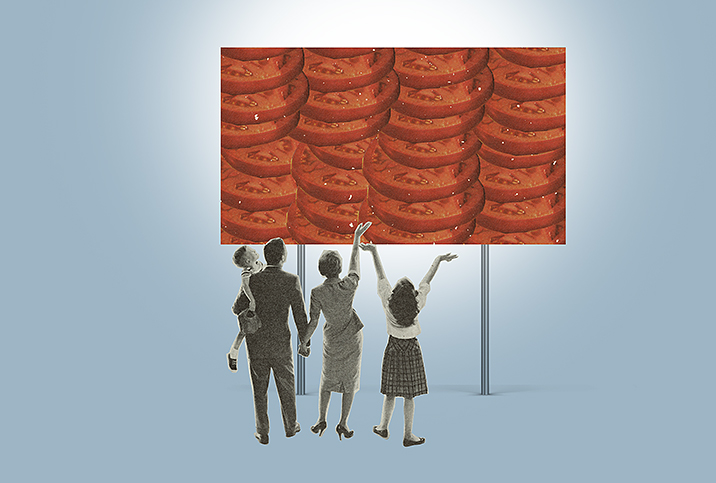Wrong Ways for a Woman to Lose Weight

In 2019, the weight loss and management industry was appraised at about $200 billion; by 2027, it's expected to reach nearly $300 billion, according to estimates from Allied Market Research.
So, whether you're trying to lose weight for health purposes or to get the body you desire, there are clearly plenty of products, plans and programs to help you achieve said goals. However, some choices may backfire. For long-term success, start your journey informed and know what to avoid.
Starving yourself
This practice stems from a variety of misconceptions. We've long associated overeating with weight gain, so if that's true, then undereating would do the opposite. Diet companies' products and programs are typically predicated on restriction, whether on calorie intake or certain macronutrients, such as carbs, sugars or fats. More is more, and less is less, so to speak.
This thinking is critically flawed. When you greatly reduce your food intake, your metabolism naturally slows in order to extract more energy from less food. This means burning calories becomes more difficult. In basic terms, your body will want to hang on to whatever it can. Additionally, because your body is in survival mode to conserve energy, you may feel lethargic, making exercise and your normal day-to-day activities more difficult.
Severely limiting food intake is also unsustainable. There is a high probability that to cope with hunger, you will binge eat high-calorie foods, which is hard on your digestive system and can lead to feelings of guilt and shame.
All of these behavioral patterns combine to create the ideal conditions for a person to develop an eating disorder. If you are worried about your diet or feel it's too restrictive, speak with a doctor.
Having unrealistic expectations
When there are events or milestones in the picture—think weddings, trips or birthdays—we may feel driven to set goals beyond our means in the hope of seeing results faster. This can cause people to try more aggressive weight loss methods, which are unsustainable and potentially damaging.
Bear in mind that weight loss programs that worked for others may not work for you in the exact same way. You are unique, not just in your lifestyle and habits, but in the chemical and physical makeup of your body.
Be patient with yourself. You did not gain weight overnight, so do not attempt to lose it overnight. Set short-term goals and upon reaching them, set more. Make sure they're achievable. This will encourage you to continue, so you will be unlikely to give up or switch plans.
Focusing on exercise at the expense of diet
Starving yourself won't work, but neither will doubling down on your workouts. You can exercise all year round and not shed a pound. Weight loss hinges on a calorie deficit, therefore you must burn more calories than you consume, and it's easier to take in fewer calories than it is to burn more.
However, don't discount the role of exercise. Aside from being good for your heart, hormones and musculoskeletal system, regular exercise increases your resting metabolism, which helps you burn more calories even when you're not actively working out. A study published in Progress in Cardiovascular Diseases found that a combination of exercise and diet resulted in more weight loss than through exercise alone.
Resorting to slimming/diet pills
Losing weight takes a concerted effort and a strategy, which may make some women wish for an easier option. Enter the diet pill.
These medications—available by prescription, over the counter or by any number of other avenues—promise to help you drop pounds by suppressing your appetite and/or increasing your metabolism, in many cases without any work on your part.
These pills were originally formulated to replace amphetamines as diet suppressants and share many of the same characteristics. There is a high risk of dependence with slimming pills, as they can increase energy and create a feeling of euphoria. Common side effects are bloating, gas, diarrhea and insomnia; in cases of long-term and more intense use, women may hallucinate or have chest pain, rashes or itchiness. This is not to mention the damage diet pills can inflict on the body, particularly the liver.
While not quite as extreme, it's easy to fall prey to influencers on social media and advertisements crediting "flat tummy tea" or appetite suppressant lollipops for their slim physique. The bottom line is, these products don't work and are an enormous waste of money.
Eliminating all fats from your diet
It's not a secret and it makes sense: If you want to be skinny, the word "fat" is scary, even when referencing a necessary nutrient to your body. Combine this with a social fixation on low-fat or zero-fat foods, and your logical impulse may be to strike the food group from your diet altogether.
This is a perfect example of throwing the baby out with the bathwater. There is such a thing as "bad" fat, to be sure: Trans and saturated fats are linked to higher LDL cholesterol—the bad cholesterol. These fats are typically things like shortening, butter, margarine or lard. A good rule of thumb is to avoid fats that are solid at room temperature (though, of course, there are exceptions, like high-fat dairy), and keep in mind that between trans and saturated fats, saturated fats are the lesser evil.
However, "good" fats benefit your cholesterol and therefore your heart health, particularly omega-3 and omega-6 fatty acids. These are common in fish like salmon, sardines and trout, as well as in nuts and seeds.
This also goes for other food groups, like carbs and sugars. Just because a food contains these components does not make it bad for you. In fact, your body needs a little of everything.
Research is one key to finding a healthy path forward. Another is to coordinate with your healthcare provider before making any changes to your regular diet or exercise regimen.


















